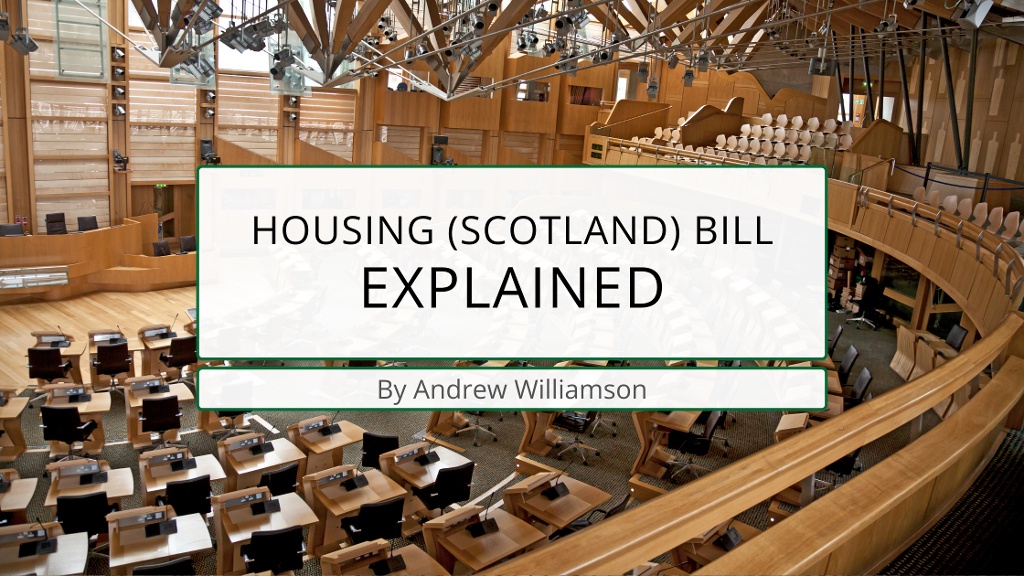Housing (Scotland) Bill Passed: What It Means for Tenants and Landlords
Albany Lettings in Edinburgh
8th October 2025

Housing (Scotland) Bill Passed: What It Means for Tenants and Landlords
On 30 September 2025, the Scottish Parliament passed the Housing (Scotland) Bill, marking one of the biggest updates to housing law in years.
The new Bill, which now awaits Royal Assent, aims to create a fairer balance between tenant protection, landlord confidence, and housing investment. It also forms part of the Scottish Government’s response to the national housing emergency declared in May 2024.
Rent Control Areas Introduced
One of the most notable changes is the creation of Rent Control Areas.
Local authorities will now be responsible for assessing local rental market conditions and reporting their findings to the Scottish Government. Based on this data, Ministers can designate specific areas where rent increases are capped at CPI + 1%, up to a maximum of 6% per year.
This aims to make rent rises more predictable and manageable for tenants, while still allowing landlords some flexibility to adjust in line with inflation and rising costs.
Student Accommodation: Exempt, but Not Unchanged
Purpose-built student accommodation (PBSA) will remain exempt from rent controls, as student tenancies are not covered by the Private Housing (Tenancies) (Scotland) Act 2016.
However, the Bill introduces new powers for the Scottish Government to set a statutory 28-day notice period for students wishing to end their tenancy early.
Further work is also underway to develop model tenancy terms for student housing, helping to bring greater consistency and transparency across the sector.
Exemptions for Build-to-Rent and Mid-Market Housing
Housing Secretary Mairi McAllan has confirmed that certain property types will be exempt from rent control measures.
These include build-to-rent and mid-market rental developments, to help maintain investor confidence and encourage the continued growth of Scotland’s rental housing supply.
The finer details of these exemptions will be confirmed through secondary legislation following further consultation later this year.
A New Right to Request Pets
The Bill also gives tenants a formal right to request permission to keep a pet. Landlords will no longer be able to refuse such requests unreasonably.
For private residential tenancies (PRTs):
- Tenants must make the request in writing.
- Landlords will have 42 days to respond.
- If no response is given, it may be treated as a refusal.
Landlords can still apply reasonable conditions (for example, around hygiene, property care, or pet welfare) and refuse permission where there are valid safety or property-related concerns.
More Freedom to Personalise the Home
Tenants will also have greater freedom to make minor decorative or practical changes to their home.
- Category 1 changes (small adjustments like hanging pictures or shelves) may not need consent.
- Category 2 changes (e.g. painting walls or adding fixtures) can be requested, and landlords must not unreasonably refuse.
Once a tenant has lived in a property for six months or more, landlords will be expected to give reasonable consideration to these requests rather than declining them automatically.
What This Means for the Rental Sector
At Albany Lettings, we believe balanced legislation benefits everyone. It gives tenants more stability and comfort in their homes, while ensuring landlords continue to have the confidence to invest in quality properties.
If you’re a landlord and would like to understand how these changes could affect your property or tenancy, our team is here to help.
